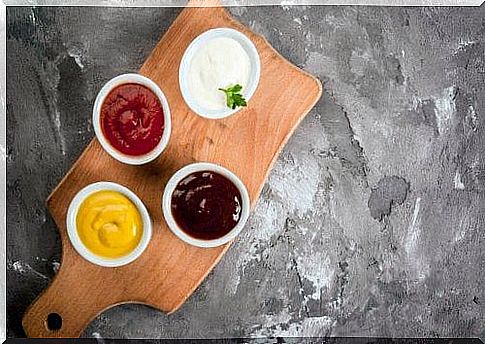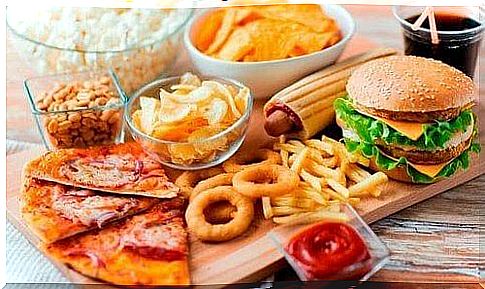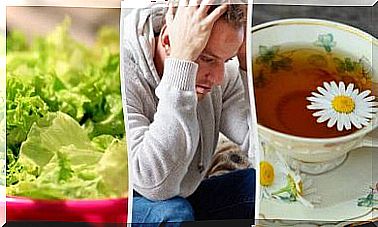Ten Prohibited Foods If You Want To Regulate Your Glucose Levels

Diabetes is a thriving disease, in fact classified as one of the most dangerous non-communicable diseases in our world today. Today there are approximately 415 million diabetics in the world. Thus, proper blood sugar levels are extremely important to our health.
There is a fine line between high blood sugar (known as pre-diabetes) and actual diabetes. Thus, the prevention of this disease is entirely in your hands.
To maintain a healthy blood sugar level, you need to limit or avoid eating certain types of food. But do you know which ones are specific? In our today’s article, we will tell you about the 10 most important of them. So we invite you to read!
Recommendations for maintaining normal blood sugar levels
Changes in glucose levels can lead to hyperglycaemia or hypoglycaemia. Your blood sugar rises as you consume carbohydrates. Due to this increase (hyperglycemia), the pancreas secretes insulin for the cells to use this glucose.
Likewise, blood sugar drops below 70 mg / dL when insulin is excessively high, leading to hypoglycaemia. This situation is also risky to your health.
The three main pillars of regulating blood sugar (glycemia) are diet, exercise, and hyperinsulinemia. To regulate your glucose levels, you must be in complete control of your diet. In addition, you need to develop the following healthy habits:
- Drink 6 to 8 large glasses of water daily.
- Spend at least 40 minutes a day engaging in moderate-intensity exercise.
- Establish a regular eating schedule.
- Don’t be without food for more than 4-5 hours.
- Get in the habit of reading food labels.
- Follow a diet low in saturated fat.
Avoid the following ten types of foods to maintain normal blood sugar levels
Current trends reveal an increase in the consumption of foods labeled “zero”, “light”, “light”, “reduced …”, “free …” and so on. All of them are, in theory, intended for people who suffer from this or other metabolic disorder, including those whose typical glucose values are different from the standard range.
Overall, however, all of these foods usually contain large amounts of sugar hidden in them. Therefore, special attention should be paid to the carbohydrates in them, as they can lead to disturbances in the blood glucose balance.
Avoid foods that contain more than 10% sugar / 10 grams carbohydrate per 100 grams.
If you are trying to maintain a healthy blood sugar level, remember that certain types of food must be avoided. Many of the types of food items listed below are often viewed as being “healthy” or “dietary”.
1. Sauces and dressings have an adverse effect on blood sugar levels
Basically, sauces and dressings are a tasty addition to meat and vegetables. However, their main problem is that most of the products available in stores are over-processed and contain, for example, corn syrup, fructose and other additives that change blood sugar levels.

Overall, be aware that commercially manufactured sauces and dressings are over-processed foods that contain hidden sugars and other additives that can lead to glucose disturbances.
2. Meat processed by industrial methods
These processed foods can lead to an increase in cholesterol and triglyceride levels, which in turn increases the risk of cardiovascular disorders.
3. Grains and refined grains
Cereals go through a processing process where they lose their valuable fiber as well as vitamins, minerals and antioxidants to become refined products. The result is a type of food with a high GI that leads to a spike in blood glucose levels.
4. The effect of alcohol on blood sugar levels
When you drink alcohol, the liver stops producing glucose. And that means your blood sugar is going down. This phenomenon is rather dangerous for diabetics as it often leads to hypoglycemia.
5. Cakes
They are high in refined flour and contain trans fats. The combination of both is usually associated with decreased insulin sensitivity in body tissues. This in turn leads to an increased risk of diabetes.
6. Fast food and generally “junk food”
They usually contain a high level of free sugars in their composition.

In addition, fast food also contains fats and other additives that may adversely affect the functioning of metabolic processes.
7. Overly processed foods
All over-processed foods that have undergone heat treatment produce toxic substances. So these chemicals can cause insulin resistance in many ways.
Overly processed foods contain substances that alter blood sugar levels. In addition, their frequent consumption can negatively affect some disorders – such as insulin resistance.
8. Carbonated or sweetened beverages
Soft drinks, also known as carbonated drinks, mainly contain free sugars that metabolize quite quickly and directly affect high blood sugar levels.
9. Sweet syrups and honey
They are a source of large amounts of sugars such as glucose and fructose, which are involved in the occurrence of glucose disturbances in the body.
10. Natural and commercially produced juices
While it is true that some of these commercial products contain only natural sugars (i.e. fructose), as a rule, the food industry usually adds other sugars such as sucrose and corn syrups as preservatives.
Are you trying to regulate your blood sugar through your diet? If so, you must avoid the types of foods mentioned above. Finally, remember that you should always consult a dietitian to come up with a diet plan that suits your needs.









